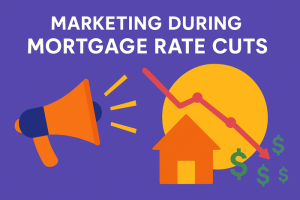Summary
This post discusses compliance practices in mortgage marketing strategies. Learn about the key features of staying compliant with legal guidelines and how it helps avoid potential legal issues. By the end, you’ll know the importance of maintaining transparency in advertising, protecting your reputation, and ensuring that marketing efforts align with industry regulations.
As a loan officer or mortgage broker, you know how important it is to comply with laws and regulations. Several necessary regulations affect mortgage marketing. Ensuring that your brochures, advertisements, and emails follow regulations is paramount.
Here are five regulations and restrictions to consider when designing your mortgage marketing strategy:
1. Mortgage Acts and Practices — Advertising

Otherwise known as Regulation N, this act governs advertising within the mortgage industry. It prohibits deceptive claims in mortgage advertising and other commercial communications. Examples of misleading claims include:
- Advertising a low fixed rate that is only applicable for a short period
- Failing to include significant loan terms, such as the length of the loan or type of loan
- Implying that the mortgage lender is part of a government agency when they are not
Mortgage lenders and brokers must be cautious not to use misleading advertising. Any brochures should be reviewed before sending them to potential customers.
2. Fair Housing and Equal Opportunity Act
The Fair Housing and Equal Opportunity Act prohibit discriminatory advertising practices. Mortgage ads may not result in bias according to age, nationality, or race.
Ads should be straightforward and present lending opportunities to anyone. There should be no preference given to certain classes of people. For example, an advertisement for an apartment cannot include the phrase “no children.” It also may not say “no wheelchairs” or anything else discriminatory.
3. Equal Credit Opportunity Act
The Equal Credit Opportunity Act requires loan approvals made based on creditworthiness. Thus, a lender cannot prevent someone from applying for a mortgage based on a factor such as age or race.
The act aims to ensure all people have access to mortgage loans based on their credit histories. If a mortgage lender advertises a specific loan, they can’t include language such as “no foreign applicants.”
4. Truth in Lending Act
The Truth in Lending Act applies to any advertisement designed to promote consumer credit. It contains two main points that apply to real estate credit.
First, an advertisement cannot promote lending terms that are not customary. If a down payment of 20% is required to buy a home, an ad cannot promote $1,000 down payments.
Second, financing rates must be visible. If a promotional interest rate applies for a few months, the annual rate must be in the same point size and typeface as the promotional rate.
5. Consumer Financial Protection Bureau (CFPB) Rules

The CFPB oversees the regulation of marketing materials for real estate lending. It often sends warnings and notifications when companies are breaching advertisement requirements. A recent sweep found lenders were sending ads with government stamps on them. The lenders have no affiliation with any government agency.
How a Mortgage CRM Can Help You
BNTouch offers a Mortgage CRM for those seeking to manage their advertising efforts. The CRM can help you remain compliant.
Key Takeaways
- Mortgage Marketing Compliance:
Ensuring your marketing follows legal regulations is vital to avoid fines and legal issues. Compliance maintains trust with your audience.
- Adherence to Regulatory Guidelines:
Sticking to specific advertising guidelines helps maintain transparency in your messaging, which builds consumer confidence and ensures fair practices.
- Maintaining Advertising Standards:
Accurate and transparent mortgage advertising standards protect your brand’s reputation and ensure that consumers receive truthful information.
Commonly Asked Questions
- What is mortgage marketing compliance and why is it important?
Mortgage marketing compliance ensures that all marketing efforts adhere to legal and ethical standards set by regulatory bodies. It’s crucial to avoid penalties and protect your business’s reputation.
- How do regulatory guidelines affect mortgage marketing?
Regulatory guidelines dictate what mortgage marketers can and cannot say in their advertisements. Sticking to these guidelines ensures that all marketing messages are truthful, fair, and not misleading, helping to avoid legal issues and maintain trust
- What are the key mortgage advertising standards to follow?
Mortgage advertising standards require clear disclosures of loan terms, accurate representations of rates, and transparency about fees. Following these standards ensures your marketing is ethical, informative, and compliant with the law and finally fostering trust with potential clients.
For a free demo, contact us today!





